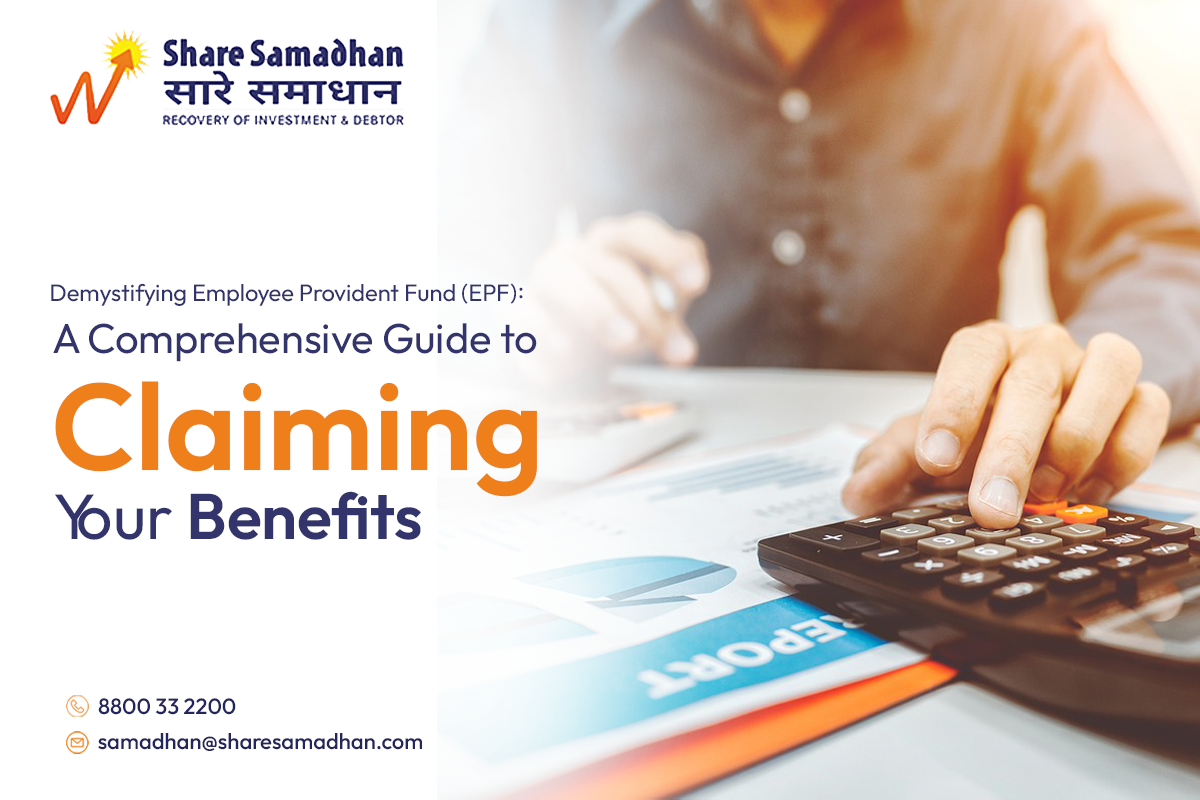Unlocking Dormant Investments: IEPF Unclaimed Shares and Fund Recovery Services
Introduction
In today's fast-paced world, it's common for individuals to lose track of their investments, including shares and stocks. Whether due to oversight, relocation, or lack of awareness, many investors find themselves unaware of the existence of dormant shares in their name. However, there's good news: the Investor Education and Protection Fund (IEPF) provides a mechanism for reclaiming such unclaimed shares, ensuring that investors can recover their rightful assets. Let's delve into it with greater detail...
Understanding IEPF Unclaimed Shares:
IEPF unclaimed shares refer to shares and dividends that have been lying dormant in the accounts of companies for a specified period. Under the Companies Act, 2013, these unclaimed shares are transferred to the IEPF, a fund established by the government to protect the interests of investors. Once transferred to the IEPF, these shares are held in trust for the rightful owners, who can claim them back through a prescribed process.
The Role of Fund Recovery Companies:
Recovering unclaimed shares from the IEPF can be a complex and time-consuming process, especially for individuals who are unfamiliar with the procedures involved. This is where fund recovery companies play a crucial role. These companies specialize in assisting investors in reclaiming their dormant assets, including unclaimed shares. By leveraging their expertise and experience, fund recovery companies streamline the process, helping investors navigate the intricacies of IEPF rules and regulations.
Navigating the Recovery Process:
Reclaiming unclaimed shares through the IEPF involves several steps, including verifying ownership, submitting the necessary documents, and following the prescribed timelines. Fund recovery companies guide investors through each stage of the process, ensuring compliance with regulatory requirements and maximizing the chances of successful recovery. With their assistance, investors can reclaim their dormant shares efficiently and effectively, unlocking the value of their investments.
The Procedure of Utilizing IEPF Unclaimed Shares in Asset Recovery
The process of the Role of IEPF Unclaimed Shares in Asset Recovery involves several steps to reclaim dormant shares and dividends held by the Investor Education and Protection Fund (IEPF). The process can be summarized as follows:
- Identification:Â The first step is to identify whether you have any unclaimed shares or dividends held by the IEPF. This can be done by checking the status of your investments with the companies in which you hold shares or through the IEPF website.
- Verification of Ownership:Â Once you've identified potential unclaimed shares, you need to verify your ownership of these assets. This may involve providing proof of identity, address, and ownership of the shares, such as share certificates or demat account statements.
- Documentation:Â Prepare the necessary documentation required for claiming the unclaimed shares from the IEPF. This typically includes a claim form, along with supporting documents such as identity proof, address proof, proof of ownership, and any other documents specified by the IEPF.
- Submission of Claim:Â Submit the completed claim form and supporting documents to the respective company's registrar or transfer agent, who will then verify the details and forward the claim to the IEPF. Ensure that all information provided is accurate and up-to-date to avoid any delays in processing your claim.
- Processing by IEPF:Â Once the claim is received by the IEPF, it will be processed by the authorities. The IEPF will verify the authenticity of the claim and conduct necessary checks to ensure compliance with regulatory requirements.
- Approval and Transfer:Â If the claim is found to be valid, the IEPF will approve the transfer of the unclaimed shares and dividends back to the rightful owner. The shares will be transferred to the investor's demat account, while dividends will be credited to their bank account.
- Recovery of Assets:Â After the approval and transfer process is completed, investors will receive a notification confirming the recovery of their assets. They can then access their reclaimed shares and dividends through their demat account or bank account, respectively.
- Monitoring and Follow-Up:Â It's essential to monitor the progress of your claim and follow up with the relevant authorities if there are any delays or issues. Stay informed about the status of your claim through regular updates from the IEPF or the company's registrar.
By following these steps and staying proactive in the asset recovery process, investors can reclaim their dormant shares and dividends held by the IEPF, thereby unlocking the value of their investments.
Conclusion:
IEPF unclaimed shares offer a valuable opportunity for investors to recover lost assets and unlock dormant investments. By availing of share recovery services, investors can navigate the recovery process with ease and confidence, reclaiming their rightful shares and dividends. With the support of Share Samadhan, reclaiming lost wealth becomes a straightforward and hassle-free endeavor, ensuring that investors can enjoy the full benefits of their investments.





